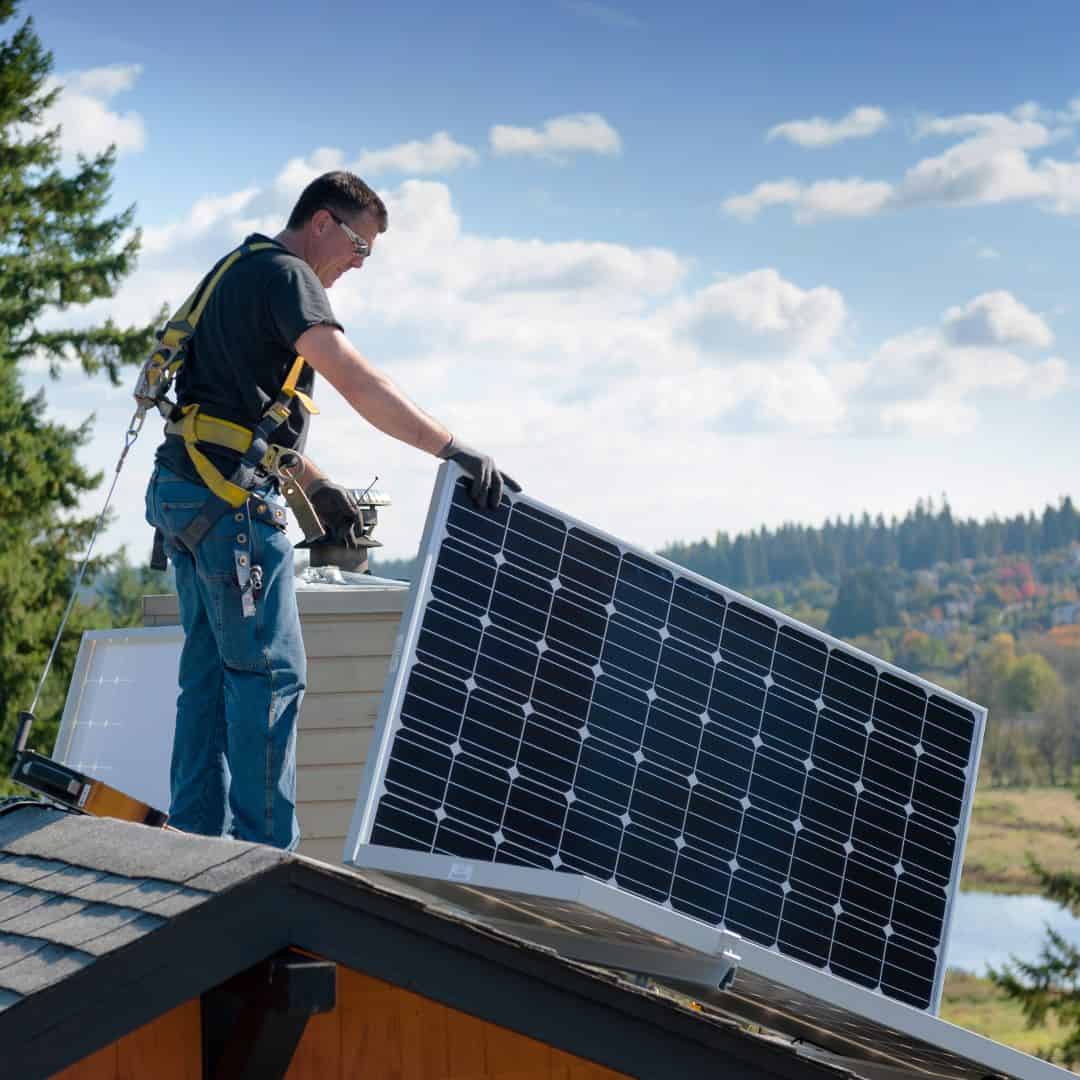
Sustainability
Solar Makes Switching From Gas to Electric Pencil Out
In our climate-conscious era, homeowners (in Oregon especially) are looking for ways to improve energy efficiency and sustainability, and transitioning from gas to electric power sources is a compelling solution. This shift not only addresses environmental concerns but also offers benefits in terms of convenience and cost savings. And when combined with the integration of solar power, this dual transformation sets homeowners on a path toward a much more sustainable future.
The Issue with Gas-Powered Appliances
The urge to switch from gas to electric power sources is marked by the growing demand to improve indoor air quality in addition to combating climate change. Gas-powered appliances emit nitrogen dioxide and other pollutants into one’s home, creating a significant risk for anyone with a respiratory condition, particularly asthma.
Venting these emissions out of the home seems like a quick fix, but releasing them into the atmosphere simply contributes to outdoor air pollution and subsequently accelerates global warming. Making the switch to electric appliances, which are often less expensive, more energy-efficient, and produce lower emissions is a vital step towards reducing the environmental impact of our homes.
Making the Switch
Adopting electric appliances requires a thoughtful approach. The first step involves evaluating your current gas-powered appliances. When they reach the end of their service life, or when you’re ready to upgrade, switching to just any electric appliance is not the goal. High-efficiency electric appliances are where you should focus.
Set your sights on a heat pump for heating and cooling the air in your home and for heating water. Heat pumps are more efficient because they transfer warm air rather than generating it.
For your kitchen, take a look at the various makes and models of induction cooktops and ranges. A high-efficiency smart oven might also be an option.
Switching power sources and installing new appliances is likely to require professional assistance, but the benefits of reduced carbon footprint make the effort worthwhile.
Is What’s Good for the World Good for the Wallet?
Now, even a brief bit of research into switching from natural gas to electricity in Oregon or Washington will tell you that while electric appliances are less expensive and more practical, electricity itself is currently more expensive to use than natural gas. So, after making the switch to more efficient appliances and feeling the glow of a smaller carbon footprint, you could still end up with higher energy bills as electricity costs rise in the future, and that certainly lessens the appeal.
This is where solar comes in.
Solar Saves
 Adding solar to the equation is the biggest advantage of switching to electric. Generating renewable energy through strategically placed solar panels not only reduces your environmental impact, it also reduces your reliance on the grid and makes your home more resilient to outages.
Adding solar to the equation is the biggest advantage of switching to electric. Generating renewable energy through strategically placed solar panels not only reduces your environmental impact, it also reduces your reliance on the grid and makes your home more resilient to outages.
The idea of purchasing new electric appliances and investing in a solar energy system may seem daunting, but the long-term savings are substantial. Substantial enough to re-pay your investment and decrease or eliminate your electricity bill. At that point, excess energy can even be fed back into the grid, potentially earning homeowners credits or compensation.
Learn more about this North Portland homeowner who has credit balances on her PGE bills.
You can get to that point sooner, too, when you make the most of the various rebates, funds, and tax credits available to help with the upfront costs of your solar energy system.
Talk to a Neil Kelly Solar specialist to schedule an assessment and find out how solar pencils out for your home.
Switching from gas to electric and embracing solar power extends far beyond mere energy efficiency. It’s about making a conscious commitment to a sustainable lifestyle and influencing the larger transition towards renewable energy sources. By making these changes, homeowners not only contribute to a healthier planet but also enjoy financial savings, increased home value, and a sense of pride in actively participating in a greener future. The decision to switch is an investment not just in a home, but in the well-being of the planet and generations to come.